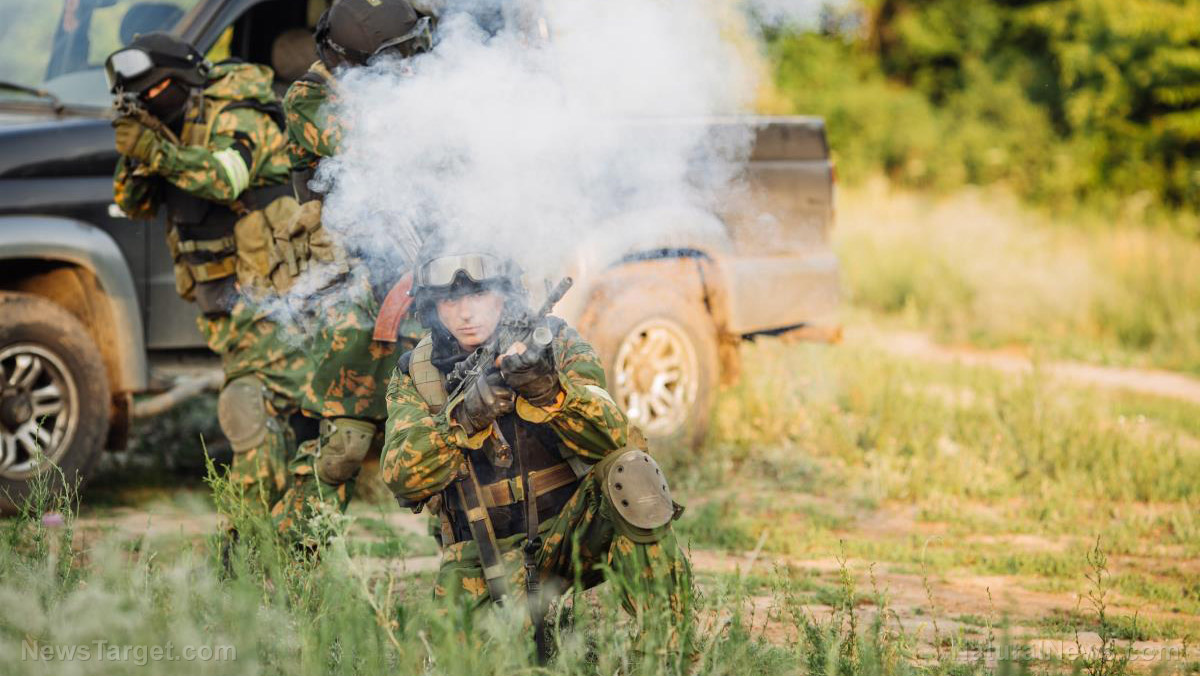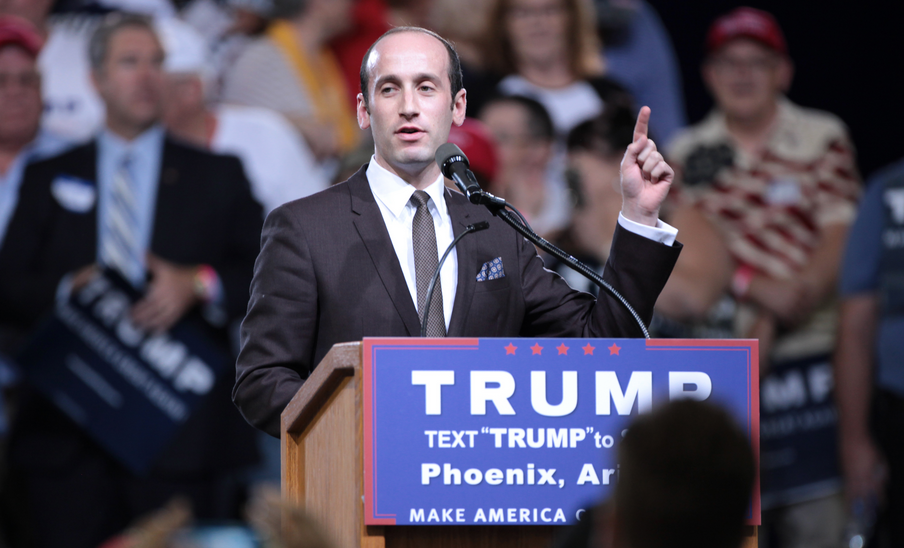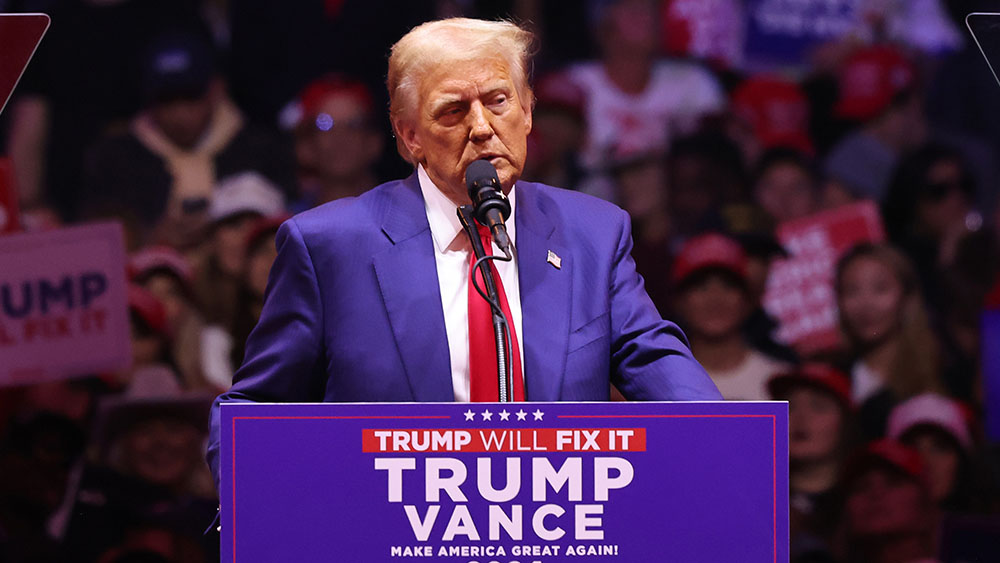U.S. Special Forces to train Mexican Navy: A bold step in the war on drugs or a risky gamble?
By willowt // 2025-02-14
Tweet
Share
Copy

- The Mexican Senate unanimously approved U.S. Special Forces to train Mexican naval personnel, marking a significant shift in U.S.-Mexico security cooperation.
- The decision comes under pressure from the Trump administration to combat drug cartels and illegal immigration, reflecting a high-stakes issue in U.S.-Mexico relations.
- The program, scheduled from February 17 to March 28, 2025, will involve joint exercises focusing on combat tactics in various environments to address cartel operations.
- While praised by some as a step towards stronger border security, the move has sparked concerns about national sovereignty and potential escalation of violence.
- The initiative aims to strengthen Mexico's capabilities in disrupting drug trafficking, but its success remains to be seen, with both nations closely monitoring the outcome.
A history of cooperation and tension
This is not the first time U.S. military personnel have been granted access to Mexican territory. During the administration of former President Andrés Manuel López Obrador (AMLO), 11 U.S. soldiers were permitted to enter Mexico with weapons and ammunition to participate in joint training exercises. However, the current authorization is far more consequential, given the scale of the crisis at hand. The drug trade has long been a flashpoint in U.S.-Mexico relations. According to the U.S. Drug Enforcement Administration (DEA), Mexican cartels are responsible for trafficking the majority of fentanyl, heroin and methamphetamine into the United States. The opioid epidemic, fueled by these substances, has claimed hundreds of thousands of American lives. Meanwhile, the southern border remains a conduit for illegal immigration, human trafficking and other criminal activities. President Trump’s recent threat to impose 25% tariffs on Mexican exports — a move he paused after Mexico pledged to intensify its anti-drug efforts — highlights the high-stakes nature of this issue. The authorization of U.S. Special Forces training is seen as a direct response to this pressure.What the training entails
The training program, dubbed Fortalecer la Capacidad de las Fuerzas de Operaciones Especiales de la Secretaría de la Marina (Strengthening the Capacity of the Navy’s Special Operations Forces), will take place from February 17 to March 28, 2025. A 10-member delegation from the U.S. Army’s Seventh Special Forces Group will enter Mexico with weapons, ammunition and specialized equipment to conduct joint exercises with the Mexican Navy’s Special Operations Unit. The training will focus on conventional and unconventional combat tactics, techniques and procedures in amphibious operations across maritime, land and air environments. This comprehensive approach reflects the complexity of the challenges posed by drug cartels, which often operate in remote, difficult-to-access regions and employ sophisticated tactics to evade law enforcement. Congressman Dan Crenshaw (R-TX), a vocal advocate for stronger border security, praised the move, calling it “a step in the right direction.” In a post on social media, Crenshaw stated, “While still a small step, it’s an important political message from Mexico’s own elected officials. More of this please. The cartels must be put on notice.”Sovereignty vs. security: A delicate balance
While the decision has been hailed as a victory for cross-border cooperation, it has also sparked controversy. Critics argue that allowing foreign military personnel on Mexican soil undermines national sovereignty and sets a dangerous precedent. Others worry that increased U.S. involvement could escalate violence, as cartels may retaliate against perceived threats to their operations. President Sheinbaum, however, has defended the move, emphasizing her commitment to combating organized crime. “We are part of the same movement,” she said, referencing her alignment with AMLO’s broader political agenda. “This training is about strengthening our capabilities to protect our people and our neighbors.” The Mexican government’s willingness to collaborate with the U.S. military reflects a recognition of the shared nature of the drug crisis. As cartels continue to exploit weak points in both countries’ security apparatuses, joint efforts may offer the best chance of success.A turning point in the war on drugs?
The authorization of U.S. Special Forces training represents a potential turning point in the decades-long war on drugs. By enhancing the capabilities of Mexico’s naval special forces, the program aims to disrupt cartel operations at their source—before drugs and traffickers reach the U.S. border. Yet, the success of this initiative will depend on its execution. Will the training lead to tangible results, such as increased seizures of illicit drugs and arrests of cartel leaders? Or will it merely serve as a symbolic gesture to appease the Trump administration? For now, the decision underscores the urgency of the crisis and the need for innovative solutions. As Congressman Crenshaw aptly noted, the cartels must be put on notice. Whether this move will be enough to tip the scales in favor of law enforcement remains to be seen. In the meantime, the eyes of both nations will be on the training exercises set to begin next month. The stakes could not be higher—for the fight against drug trafficking, for border security and for the future of U.S.-Mexico relations. Sources include: TheNationalPulse.com ElFinanciero.com.mx Facebook.comTweet
Share
Copy
Tagged Under:
Donald Trump national security Mexico drug cartels Open Borders foreign relations border security War on Drugs opioids White House big government migrants drug trafficking trafficking progress cooperation
You Might Also Like
I Want My Bailout Money – new song and music video released by Mike Adams
By Mike Adams // Share
Stephen Miller exposes government fraud, Left reels in outrage
By Willow Tohi // Share
Trump bans federal funding for chemical and surgical mutilation of children
By Laura Harris // Share
Recent News
Life expectancy in Gaza halved during first year of war, Lancet study finds
By isabelle // Share
Federal immigration officials to screen social media for antisemitism posts
By lauraharris // Share
Trump moves to cut federal funding for "death trap" sanctuary cities
By avagrace // Share
Trump imposes staggering 104% tariffs on all Chinese imports, escalating trade war
By lauraharris // Share











